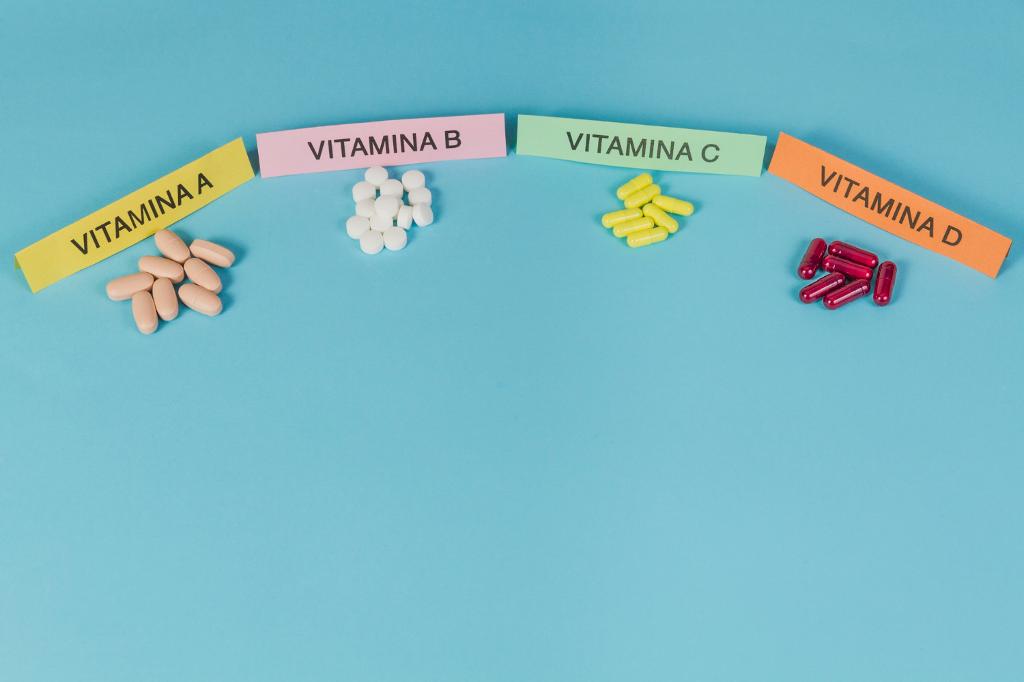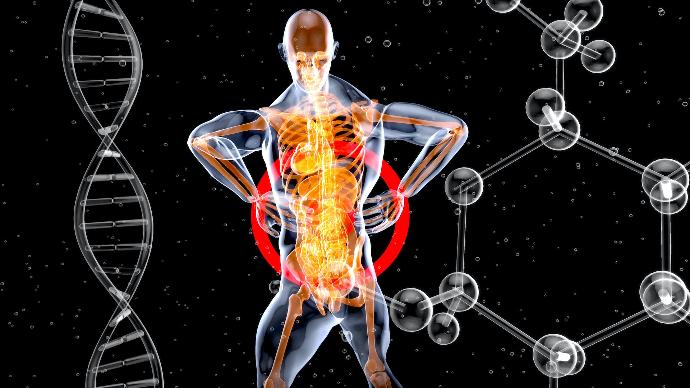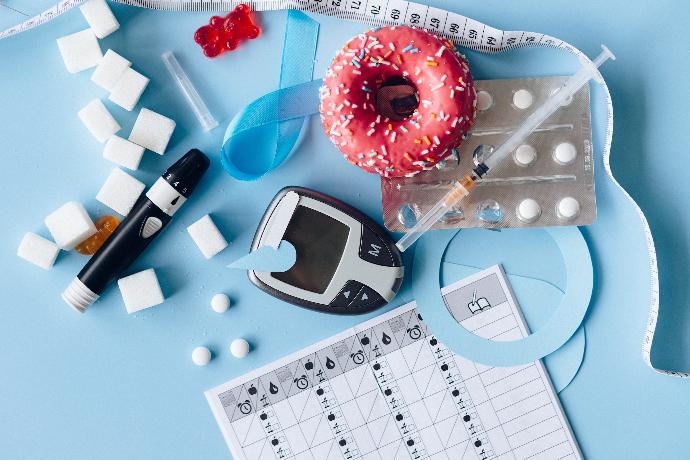What Is the Role of Potassium in Hormonal Balance?

Potassium is a vital mineral that plays a crucial role in maintaining optimal health and bodily functions. While it is commonly associated with heart health and electrolyte balance, its significance extends beyond these aspects. One area where potassium proves particularly influential is in hormonal balance. This article will explore the importance of potassium in regulating hormones and how it contributes to overall well-being.
Key Takeaways
- Potassium empowers hormonal balance - It influences thyroid function, adrenal health, and menstrual cycles, supporting overall well-being.
- Thyroid and adrenal health thrive on potassium - Adequate levels ensure proper hormone synthesis and stress response regulation.
- Electrolyte balance fosters hormone optimisation - Potassium collaborates with other electrolytes, promoting smooth hormone production.
- Potassium eases menstrual discomfort - It regulates estrogen and progesterone, alleviating bloating, cramps, and mood swings.
- Potassium harmonises testosterone levels - It contributes to reproductive health in both genders.
- Potassium supports insulin production - It aids in stabilizing blood sugar levels and metabolic balance.
- Growth hormone and cortisol find equilibrium with potassium - It influences growth and development while managing stress response.
- A potassium-rich diet aids hormonal health - Bananas, avocados, leafy greens, and citrus fruits contribute to balance.
- Lifestyle choices impact potassium levels - Managing stress, reducing sodium, and embracing a healthy lifestyle are essential.
- Strive for balanced potassium intake - Deficiency or excess disrupts hormonal balance, so moderation is key.
Understanding the Significance of Potassium
Potassium is an essential mineral that supports the proper functioning of cells, tissues, and organs throughout the body. It is an electrolyte that helps conduct electrical impulses, ensuring smooth cell communication and promoting various physiological processes. Beyond its role in maintaining heart health and blood pressure, potassium plays a significant part in hormonal balance.
Potassium and Hormones: An Intricate Connection
Hormones act as messengers in the body, regulating essential functions such as metabolism, growth, reproduction, and stress response. Achieving a delicate balance of hormones is crucial for overall well-being. With its ability to influence cellular function and nerve impulse transmission, potassium actively participates in this delicate dance of hormonal equilibrium.
The Impact of Potassium on Thyroid Function
The thyroid gland in the neck produces hormones that regulate metabolism, growth, and development. Potassium aids in synthesising and converting thyroid hormones, playing a vital role in ensuring the thyroid's proper function. Adequate potassium levels are essential for maintaining thyroid health and preventing imbalances leading to thyroid disorders.
Potassium's Role in Adrenal Health
The adrenal glands, situated on top of the kidneys, produce hormones that manage stress, metabolism, and blood pressure. Potassium supports adrenal function by facilitating hormone synthesis and regulating adrenal activity. Adequate potassium levels help ensure the adrenal glands function optimally, assisting in stress management and hormonal stability.

Maintaining Electrolyte Balance for Hormonal Equilibrium
Potassium works in conjunction with other electrolytes, such as sodium and magnesium, to maintain fluid and electrolyte balance in the body. This balance is essential for optimal hormonal function. Potassium helps regulate the movement of fluids and nutrients into and out of cells, supporting the proper functioning of endocrine glands responsible for hormone production.
Potassium and the Menstrual Cycle
A delicate interplay of hormones governs the menstrual cycle. Potassium's role in hormonal balance extends to the menstrual cycle as well. Adequate potassium levels can help alleviate menstrual symptoms such as bloating, cramps, and mood swings by regulating estrogen and progesterone levels.
The Influence of Potassium on Testosterone Levels
Testosterone, primarily known as a male hormone, is also present in females, albeit in smaller amounts. Potassium helps regulate testosterone levels, contributing to normal reproductive function in both men and women. Maintaining optimal potassium levels is essential for promoting hormonal balance and overall reproductive health.
Potassium's Effect on Insulin Production
Insulin is a hormone responsible for regulating blood sugar levels. Potassium plays a crucial role in insulin production and secretion from the pancreas. By supporting insulin function, potassium helps maintain stable blood sugar levels, promoting metabolic balance and reducing the risk of insulin resistance and related hormonal complications.

The Relationship Between Potassium and Growth Hormone
Growth hormone is vital for proper development, tissue repair, and overall growth. Potassium influences the release and activity of growth hormones in the body. Adequate potassium levels are necessary for optimal growth hormone production and the promotion of healthy growth and development.
Potassium's Impact on Cortisol Regulation
Cortisol, often called the stress hormone, plays a significant role in managing stress and regulating the body's response. Potassium helps regulate cortisol levels, ensuring an appropriate stress response without excessive or prolonged elevation of cortisol. Potassium contributes to overall hormonal equilibrium and stress management by supporting cortisol balance.
Maintaining Hormonal Balance with a Potassium-Rich Diet
To support hormonal balance, consuming a diet rich in potassium is essential. Potassium-rich foods include bananas, avocados, leafy green vegetables, tomatoes, potatoes, citrus fruits, and legumes. Incorporating these foods into your diet can help ensure adequate potassium intake and promote optimal hormonal health.

Lifestyle Factors Affecting Potassium Levels
Various lifestyle factors can impact potassium levels in the body. High sodium intake, excessive alcohol consumption, certain medications, and intense physical activity can deplete potassium levels. Conversely, adopting a healthy lifestyle, reducing sodium intake, and managing stress can help maintain optimal potassium levels and support hormonal balance.
Understanding Potassium Deficiency and Excess
Both potassium deficiency and excess can disrupt hormonal balance and overall health. Potassium deficiency, known as hypokalemia, can lead to fatigue, muscle weakness, irregular heartbeat, and impaired hormone synthesis. Excessive potassium intake, known as hyperkalemia, can cause heart rhythm abnormalities and other complications. Striking the right balance is crucial for hormonal equilibrium.
Recommended Potassium Intake for Hormonal Health
The recommended daily potassium intake varies depending on age, sex, and overall health. For adults, the general guideline is to consume around 2,500 to 3,000 milligrams of potassium per day. However, individual needs may vary, and it is best to consult with a healthcare professional to determine the appropriate potassium intake for maintaining hormonal balance.
Conclusion
Potassium is vital in maintaining hormonal balance, contributing to overall health and well-being. From supporting thyroid and adrenal function to regulating menstrual cycles and testosterone levels, potassium's influence on hormones is extensive. By consuming a potassium-rich diet and adopting a healthy lifestyle, individuals can promote hormonal equilibrium and enhance their overall quality of life.
FAQs (Frequently Asked Questions)
Q. Can potassium supplements be used to balance hormones?
Potassium supplements should only be used under the guidance of a healthcare professional. It is best to obtain potassium from natural food sources as part of a balanced diet.
Q. Can potassium deficiency cause hormonal disorders?
Potassium deficiency can disrupt hormone synthesis and function, potentially leading to hormonal imbalances and related disorders. Maintaining adequate potassium levels is crucial for hormonal health.
Q. Are there any side effects of consuming too much potassium?
Excessive potassium intake can lead to hyperkalemia, which can cause heart rhythm abnormalities and other complications. Maintaining a balanced potassium intake is essential; consult a healthcare professional for guidance.
Q. How long does it take to notice the effects of potassium on hormonal balance?
The time it takes to see the impact of potassium on hormonal balance may vary among individuals. Consistent consumption of a potassium-rich diet over time, combined with other healthy lifestyle practices, can contribute to achieving hormonal equilibrium.
Q. Can potassium deficiency affect fertility?
Potassium deficiency can disrupt hormonal balance, potentially affecting fertility. Adequate potassium levels are essential for reproductive health in both men and women.







![[PCH1S] Perpetuem - Endurance Drink for long-lasting energy (Chocolate, 1 Serving)](/web/image/product.product/1204/image_256)
![[PO12-BOX] Perpetuem - Endurance Drink for long-lasting energy (Orange, (12 x 1) BOX)](/web/image/product.product/1207/image_256)